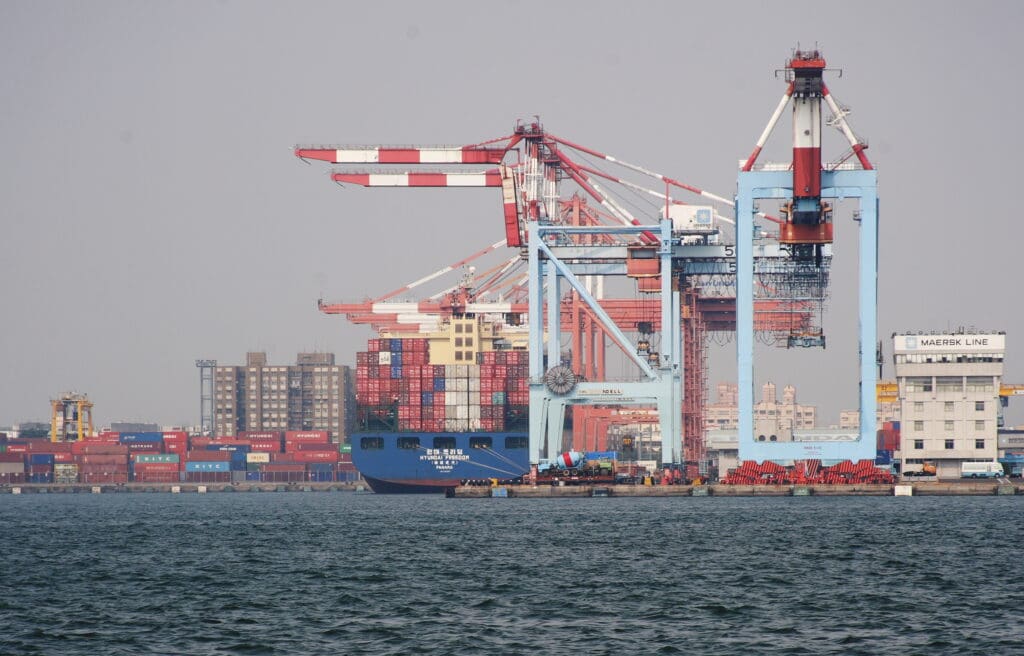In the face of a globalized economy, countries increasingly find advantages in reducing their reliance on imported goods. From fostering innovation and enhancing national security to boosting local job markets and preserving cultural identity, the benefits of focusing on domestic production are substantial.
Here are 19 compelling reasons why shifting away from imports can be a significant step towards achieving economic independence, community cohesion, and sustainable development. Delving into each benefit, we’ll uncover how these strategies not only strengthen individual nations but also contribute to a more resilient global ecosystem.
19. Stimulation of Local Research and Development

Reducing reliance on imports encourages domestic companies to invest in R&D, fostering innovation and technological advancements. This leads to the creation of high-skilled jobs and attracts investment. In the US, R&D contributes significantly to economic growth, with companies benefiting from tax credits for their research efforts.
18. Enhanced Food Security

Reducing reliance on imported food can significantly boost a nation’s food security. By increasing local production, countries become less vulnerable to global supply chain disruptions and price fluctuations. This self-sufficiency also ensures a more stable food supply during crises, enhancing overall national resilience and food accessibility for citizens.
17. Increased Consumer Trust in Products

Reducing reliance on imported goods fosters greater consumer trust in products. Recent studies show that 69% of consumers express higher confidence in certified domestic products. This trend is driven by concerns over safety, quality control, and ethical production practices. Locally-made items often undergo stricter regulations, leading to enhanced consumer confidence and loyalty.
16. Reduced Currency Exchange Risks

Decreasing dependence on imported goods minimizes exposure to foreign exchange fluctuations. This stability protects businesses from unexpected costs due to currency volatility, enhancing financial predictability. For companies engaged in international trade, reduced reliance on imports can significantly lower the need for complex hedging strategies, simplifying financial management.
15. Diversification of the Local Economy

Reducing reliance on imports encourages local economic diversification. This fosters the growth of various industries, creating a more resilient economy less vulnerable to external shocks. A diverse local economy supports multiple businesses, stimulates innovation, and opens doors for new goods and services, leading to sustainable economic growth and increased job opportunities.
14. Stronger Community Ties

Reducing reliance on imports can foster stronger local connections. Supporting local farmers and businesses creates a network of interdependence, leading to more resilient communities. This approach encourages neighbors to know each other better, participate in local events, and collaborate on community projects, ultimately building a more cohesive and supportive social fabric.
13. Improved Working Conditions

Reducing reliance on imported goods can lead to better working conditions domestically. Local manufacturers often adhere to stricter labor laws, ensuring fair wages, safer workplaces, and better benefits for employees. This shift can also pressure international suppliers to improve their practices, creating a positive ripple effect on global labor standards.
12. Increased Tax Revenue for Local Governments

Reducing reliance on imported goods can boost local tax revenue. As domestic production increases, local governments benefit from property taxes on manufacturing facilities, sales taxes on locally-made products, and income taxes from new jobs. This additional revenue can fund essential community services and infrastructure improvements.
11. Reduced Dependency on Foreign Markets

Decreasing reliance on imported goods lessens a country’s vulnerability to external economic shocks and supply chain disruptions. By fostering domestic production, nations can better control their economic destiny, enhance self-sufficiency, and maintain stability during global crises. This increased resilience can lead to more sustainable long-term growth and improved national security.
10. Enhanced Product Traceability

Reducing reliance on imported goods improves product traceability throughout the supply chain. Shorter, more localized supply chains make it easier to track materials, components, and finished products from source to consumer. This enhanced visibility allows for quicker identification and resolution of quality issues, recalls, and compliance concerns, ultimately improving consumer safety and trust.
9. Preservation of Traditional Skills and Craftsmanship

Reducing reliance on imports encourages the revival of local artisanal skills. This preservation of traditional craftsmanship not only maintains cultural heritage but also promotes sustainable production methods. By supporting local artisans, communities can ensure these valuable skills are passed down to future generations, fostering a sense of identity and economic resilience.
8. Greater Economic Stability

Reducing dependence on imports can lead to greater economic stability by buffering against global supply chain disruptions and currency fluctuations. A more self-reliant economy is less vulnerable to external shocks, promoting steadier growth and employment. This stability can attract long-term investments and foster sustainable development.
7. Strengthened Local Supply Chains

Reducing reliance on imported goods strengthens local supply chains, enhancing resilience and flexibility. Local suppliers can respond quickly to demand fluctuations, offer personalized service, and adapt to market changes. This proximity fosters better communication, reduces lead times, and allows for more efficient quality control, ultimately creating a more robust and agile supply network.
6. Increased Innovation in Domestic Industries

Contrary to popular belief, reducing reliance on imports can actually boost innovation. When domestic firms face less foreign competition, they invest more in R&D and patent production. A study by the National Bureau of Economic Research found that import competition from China significantly decreased innovation in U.S. firms across various sectors.
5. Faster Response to Market Demands

Localizing production enables companies to quickly adapt to changing consumer preferences and market trends. With shorter supply chains, businesses can rapidly introduce new products, modify existing ones, and adjust production volumes to meet fluctuating demand. This agility gives companies a competitive edge in fast-paced industries.
4. Improved Quality Control

Reducing reliance on imported goods allows for better quality control measures. Local production enables closer monitoring of manufacturing processes, ensuring higher product standards. This leads to fewer defects, increased customer satisfaction, and reduced recall risks. Improved quality control also enhances brand reputation and customer loyalty, ultimately boosting profitability.
3. Reduced Carbon Footprint

Decreasing reliance on imported goods significantly lowers carbon emissions associated with long-distance transportation. By sourcing products locally, we minimize the environmental impact of shipping across oceans and continents. This shift not only reduces greenhouse gas emissions but also promotes more sustainable production practices, contributing to global efforts to combat climate change.
2. Enhanced National Security

Reducing dependence on imported goods strengthens national security by ensuring critical supplies are available during global crises. Domestic production of essential items like medical equipment, semiconductors, and energy resources safeguards against supply chain disruptions and potential economic coercion by foreign powers. This self-reliance bolsters a nation’s strategic autonomy and resilience.
Read More: 15 Items That Could Get More Expensive in 2025
1. Boost in Local Job Opportunities

Reducing reliance on imported goods can significantly increase domestic manufacturing jobs. A recent study found that higher import tariffs benefited wages and employment in regions with greater import protection. For instance, a 10-percentage point higher tariff increase led to a 3.2 percentage point higher wage growth in affected areas, stimulating local economies.
Read More: The Absolute Most Affordable Grocery Stores in the US







